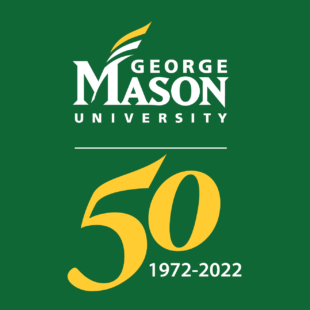The Master of Science in Telecommunications offers a blend of cutting-edge practice-oriented courses in network engineering, cloud computing, wireless communications (e. g. 5G), and cyber security. This industry-oriented program is designed for students who wish to enter the field of network engineering or are working in the field and want to advance their knowledge. The program concentrates on practical applications of network engineering, rather than on a theoretical approach, while providing a thorough education in the necessary engineering principles. Hands-on laboratory courses provide students with practical skills and knowledge needed to hit the ground running after graduation. This program also offers two certificate programs that may be incorporated into, and taken concurrently with, the MS in Telecommunications.
Students must complete a minimum of 30 graduate credits beyond the bachelor’s degree. The plan of study includes a 21-credit required core component and a 9-credit elective component. Electives should be chosen either from the list of elective courses or from one of the two concentration options.
CORE Courses
- TCOM 500 Modern Telecommunications
- TCOM 514 Basic Switching: Lecture and Laboratory Course
- TCOM 515 Internet Protocol Routing: Lecture and Laboratory Course
- TCOM 535 The TCP/IP Suite of Internet Protocols
- TCOM 570 Network Automation
- TCOM 610 Border Gateway Protocol (BGP) Routing
- TCOM 750 Coordinating Seminar
Electives
- TCOM 552 Introduction to Mobile Communications Systems
- TCOM 608 Optical Communications Systems
- TCOM 611 Multi-Protocol Label Switching (MPLS)
- TCOM 614 Advanced Routing Lab
- TCOM 616 Scalable Network Architecture
- TCOM 617 Enterprise Network Architecture
- TCOM 631 Voice Over IP
- TCOM 652 5G Service, Technology and Network
- TCOM 660 Network Forensics
- TCOM 661 Digital Media Forensics
- TCOM 663 Operations of Intrusion Detection for Forensics
- TCOM 664 Incident Response Forensics
- TCOM 590 Selected Topics in Telecommunications
- TCOM 690 Advanced Topics in Telecommunications
- ECE 542 Computer Network Architectures and Protocols
- ECE 643 Network Switching and Routing Operating Systems
- ECE 646 Applied Cryptography
Concentration in Network Technologies (NTEC)
Required Core Courses
- TCOM 535 The TCP/IP Suite of Internet Protocols
- TCOM 610 Border Gateway Protocol (BGP) Routing
Electives
Select at least two courses from the following:
- TCOM 611 Multi-Protocol Label Switching (MPLS)
- TCOM 614 Advanced Routing Lab
- TCOM 616 Scalable Network Architecture
- TCOM 617 Enterprise Network Architecture
- TCOM 631 Voice Over IP
Concentration in Network Forensics and Security (NFSC)
Required Core Courses
- TCOM 535 The TCP/IP Suite of Internet Protocols
Electives
Select at least three courses from the following:
- TCOM 660 Network Forensics
- TCOM 661 Digital Media Forensics
- TCOM 663 Operations of Intrusion Detection for Forensics
- TCOM 664 Incident Response Forensics
PhD Degre Program
Information Technology (INFT) is a multidisciplinary PhD program that spans all of the research areas available within the School of Engineering, as well as collaboration with faculty across the campus. The Information Technology PhD program emphasizes the particular aspects of technology located in the Northern Virginia Technology Corridor and around the globe. The relevance of the INFT doctoral program has grown significantly as the world has become more dependent on the effective use of information. Our focus on the science, engineering, and technology of information processing complements and enhances traditional approaches to engineering that are more strongly based on the physical and material sciences. The Information Technology PhD program is broad, and can be customized to support individual research interests. Students are encouraged to enter into an established concentration to provide focus to their program.
Concentrations:
- Information Science and Technology (ISTC)
- Information Security and Assurance (ISA)
- Information Systems (ISYS)
- Mechanical Engineering (ME)
- Software Engineering (SWE)
